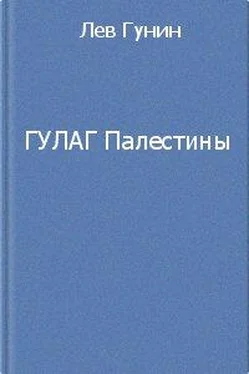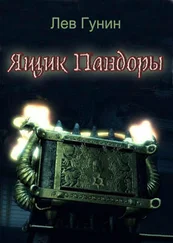Лев Гунин - ГУЛаг Палестины
Здесь есть возможность читать онлайн «Лев Гунин - ГУЛаг Палестины» весь текст электронной книги совершенно бесплатно (целиком полную версию без сокращений). В некоторых случаях можно слушать аудио, скачать через торрент в формате fb2 и присутствует краткое содержание. Жанр: Русская классическая проза, на русском языке. Описание произведения, (предисловие) а так же отзывы посетителей доступны на портале библиотеки ЛибКат.
- Название:ГУЛаг Палестины
- Автор:
- Жанр:
- Год:неизвестен
- ISBN:нет данных
- Рейтинг книги:3 / 5. Голосов: 1
-
Избранное:Добавить в избранное
- Отзывы:
-
Ваша оценка:
- 60
- 1
- 2
- 3
- 4
- 5
ГУЛаг Палестины: краткое содержание, описание и аннотация
Предлагаем к чтению аннотацию, описание, краткое содержание или предисловие (зависит от того, что написал сам автор книги «ГУЛаг Палестины»). Если вы не нашли необходимую информацию о книге — напишите в комментариях, мы постараемся отыскать её.
ГУЛаг Палестины — читать онлайн бесплатно полную книгу (весь текст) целиком
Ниже представлен текст книги, разбитый по страницам. Система сохранения места последней прочитанной страницы, позволяет с удобством читать онлайн бесплатно книгу «ГУЛаг Палестины», без необходимости каждый раз заново искать на чём Вы остановились. Поставьте закладку, и сможете в любой момент перейти на страницу, на которой закончили чтение.
Интервал:
Закладка:
On vaccinations: "After the use of cowpox vaccine became widespread in England, a smallpox epidemic broke out which killed 22,081 people. The smallpox epidemics became worse each year that the vaccine was used. In 1872, 44,480 people were killed by it. England finally banned the vaccine in 1948, despite the fact that it was one of the most widely heralded 'contributions' which that country had made to modern medicine. This action came after many years of compulsory vaccination, during which period those who refused to submit to its dangers were hurried off to jail."
On fluoridation: "What he [Oscar Ewing] wanted, and what he had been paid to bring about, was the national fluoridation of our drinking water… At the same time, Congressmen and other politicians in Washington were privately alerted by Ewing's minions that they should be careful about ingesting the fluoridated water. Supplies of bottled water from mountain springs then appeared in every office on
Capitol Hill; these have been maintained continuously ever since, at the taxpayers' expense."
On the consequences of the Rockefellers' control: "The criminal syndicalists are now looting the American nation of one trillion dollars each year, of which about one-third, more than three hundred billion dollars per year, represents the profitable depredations of the Drug Trust and its medical subsidiaries…
"America became the greatest and most productive nation in the world. When the Rockefeller Syndicate began its takeover of our medical profession in 1910, our citizens went into a sharp decline. Today, we suffer from a host of debilitating ailments, both mental and physical, nearly all of which can be traced directly to the operations of the chemical and drug monopoly, and which pose the greatest threat to our continued existence as a nation."
Although the book mainly deals with America, the situations described by Mullins in many respects equally applies to Australia, as in most other countries. The immense damning evidence that he presents makes MURDER BY INJECTION essential reading for those who are serious about understanding the true reasons behind our ailing health.
Published by the National Council for Medical Research in 1988. Hard-cover, 348 pages.
Animal Experimentation: The Hidden Cause of Environmental Pollution by Hoorik Davoudian
Writing for the United States anti-vivisection organisation called SUPRESS the author makes a direct and comprehensive connection between animal research, chemical testing and production, and environmental pollution. Ms Davoudian who is a Hazardous Materials Manager for a government agency in California, exposes the scientific fraudulence of animal research and shows how it is routinely used and manipulated to make toxicants appear "safe" for human consumption. This concise 10-page booklet further shows how the inherently erroneous nature of vivisection renders environmental laws and regulations ineffective in controlling environmental pollution.
Ms Davoudian came to the conclusion that vivisection is a scientific fraud when the very professors and researchers at the University of California, Los Angeles (where the author received her Science degree) admitted that "they were faced with great difficulties in extrapolating the results of their animal tests to human beings". After researching the issue, she determined that rather than a "difficult" task, these "scientists" were faced with a total impossibility.
In explaining the REAL motives behind industry and government's insistence on using unscientific animal testing, Ms Davoudian reveals: "The non-conclusive, erroneous nature of animal testing creates a smoke screen an alibi which permits the continued manufacture of all kinds of toxic and hazardous chemicals. Vivisection conveys a false illusion of safety, but all it ensures is a continued demand for ever 'newer' and 'improved' products. The tragic result is that these seemingly 'safety tested' poisons are the very ones which pollute our air, water, food, and planet."
On further explaining the role of vivisection, the author says: "From these 'studies', staggering amounts of ambiguous, contradictory, and invalid data are compiled. It is from these data that the 'scientist' draw their 'scientific' conclusions. And, of course, animal experimentation suits their purposes perfectly, because its non-conclusive and contradictory nature allows both the scientists and the chemical manufacturers to arrive at any kind of conclusion they desire.
"For example, if they want to 'prove' that a particular chemical is not carcinogen, all they have to do is present the evidence from those animal tests that support this view. On the other hand, if they wish to prove that the same chemical is a carcinogen, then, with just as much conviction, they can present other laboratory tests that show the product to be carcinogenic."
In addition to this, Ms Davoudian explains that the fraud of vivisection reaches beyond the process of chemical production and marketing and applies to the entire field of "environmental protection." Giving an example she says that "if a hazardous waste incinerator is to be built, the Environmental Impact Report (incorporating findings of animal studies), conducted by those in favor of the incinerator, will prove the 'harmlessness' of its air emissions with little difficulty. Yet a different Environmental Impact Report, conducted by the opposition, will prove the risks associated with the same incinerator to be unacceptable."
The booklet is timely considering that recently the United States Institute of Environmental Health Services after reviewing their tests on laboratory animals has concluded that the Government should no longer rely on these tests because chemicals frequently have wholly different effects on animals and humans. Consequently the US environmental regulation has been thrown into question.
Science On Trial by Dr Robert Sharpe
The subtitle of this latest book by Robert Sharpe is The Human Cost of Animal Experiments, and that cost is great indeed. Drawing on extensive research, Sharpe, formerly a Senior Research Chemist at the Royal Postgraduate Medical School in London, presents a powerful body of evidence and argument to demonstrate that, far from being scientific, animal research is methodologically flawed, and has retarded advances in human health.
The advocates of animal experimentation have mounted a sophisticated public relations campaign to justify the use of non-human animals as surrogates for human studies in a "controlled" environment, a claim rebutted by Sharpe. He reveals that the choice of animals is usually governed by factors such as cost, ease of management, and reproductive rates. Hence mice and rats, who scarcely resemble humans are the most popular choice.
The book offers a wide range of empirical examples of the misleading results, false positives and missed opportunities arising from research based on a "logical fallacy". Millions of animals have been sacrificed for no apparent purpose, while research applicable to human beings has been ignored, often for decades. Animal studies attract a disproportionately large percentage of research funds compared with research of direct relevance to humans.
For instance, forty years ago a famous study of the smoking habits of British doctors revealed that the chances of lung cancer increased with the number of cigarettes smoked. These findings were ignored in favour of animal studies in which, after fifty years of trying, scientists were unable to induce experimental cancers in animals by forced inhalation, feeding, or injection into the lungs.
Benzene, arsenic and alcohol were correlated with human cancers long before animal studies were begun. In fact, in the case of arsenic, its suspected carcinogenicity was noted as far back as 1809. Workers in the metallurgical and other industries using arsenic were contracting cancer, but not until the 1980s were scientists able to induce cancer in experimental animals. [Which of course is a form of cancer dissimilar to the human cancer.] This was 180 years after arsenic was first suggested as a human carcinogen.
Читать дальшеИнтервал:
Закладка:
Похожие книги на «ГУЛаг Палестины»
Представляем Вашему вниманию похожие книги на «ГУЛаг Палестины» списком для выбора. Мы отобрали схожую по названию и смыслу литературу в надежде предоставить читателям больше вариантов отыскать новые, интересные, ещё непрочитанные произведения.
Обсуждение, отзывы о книге «ГУЛаг Палестины» и просто собственные мнения читателей. Оставьте ваши комментарии, напишите, что Вы думаете о произведении, его смысле или главных героях. Укажите что конкретно понравилось, а что нет, и почему Вы так считаете.


